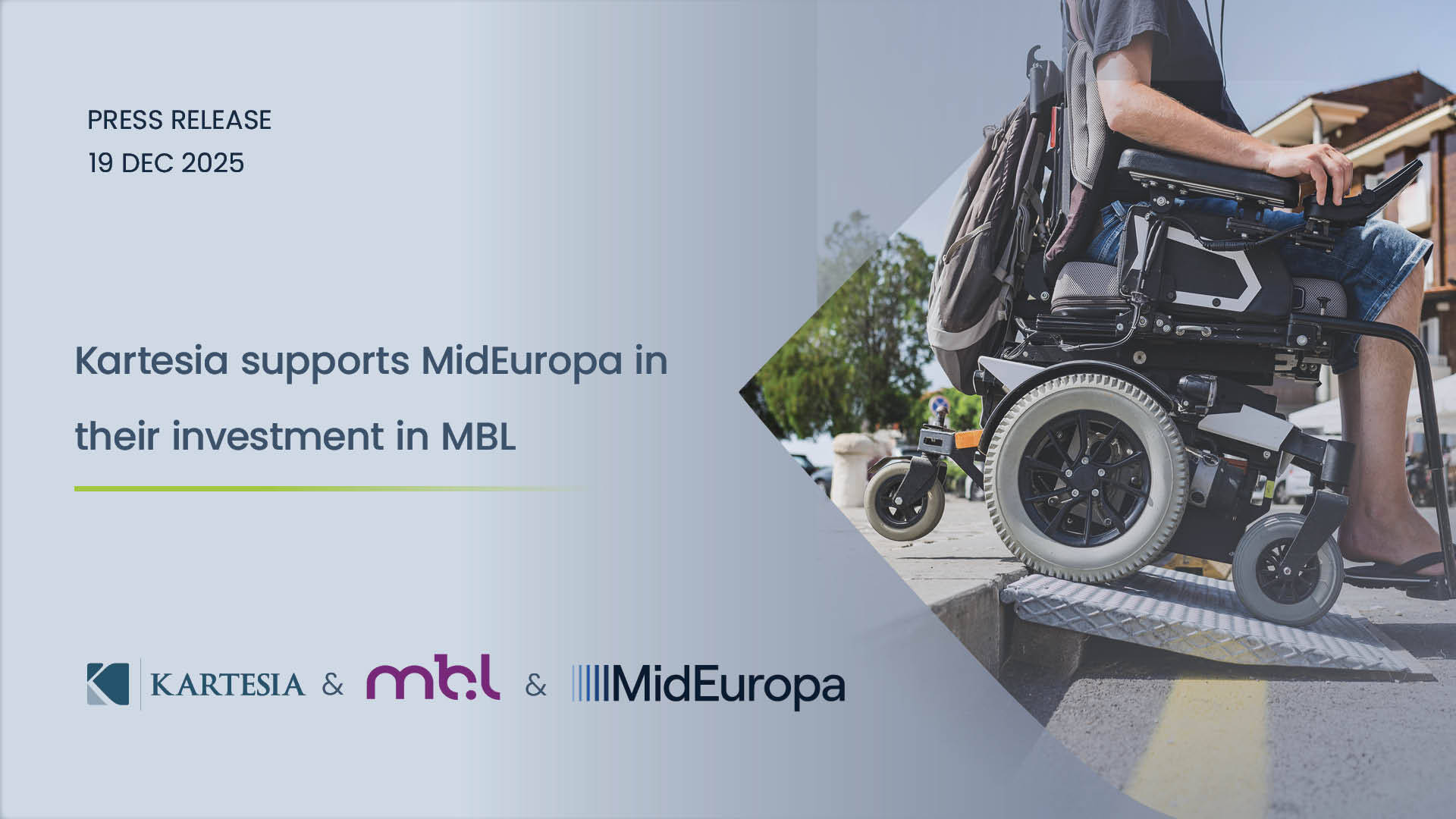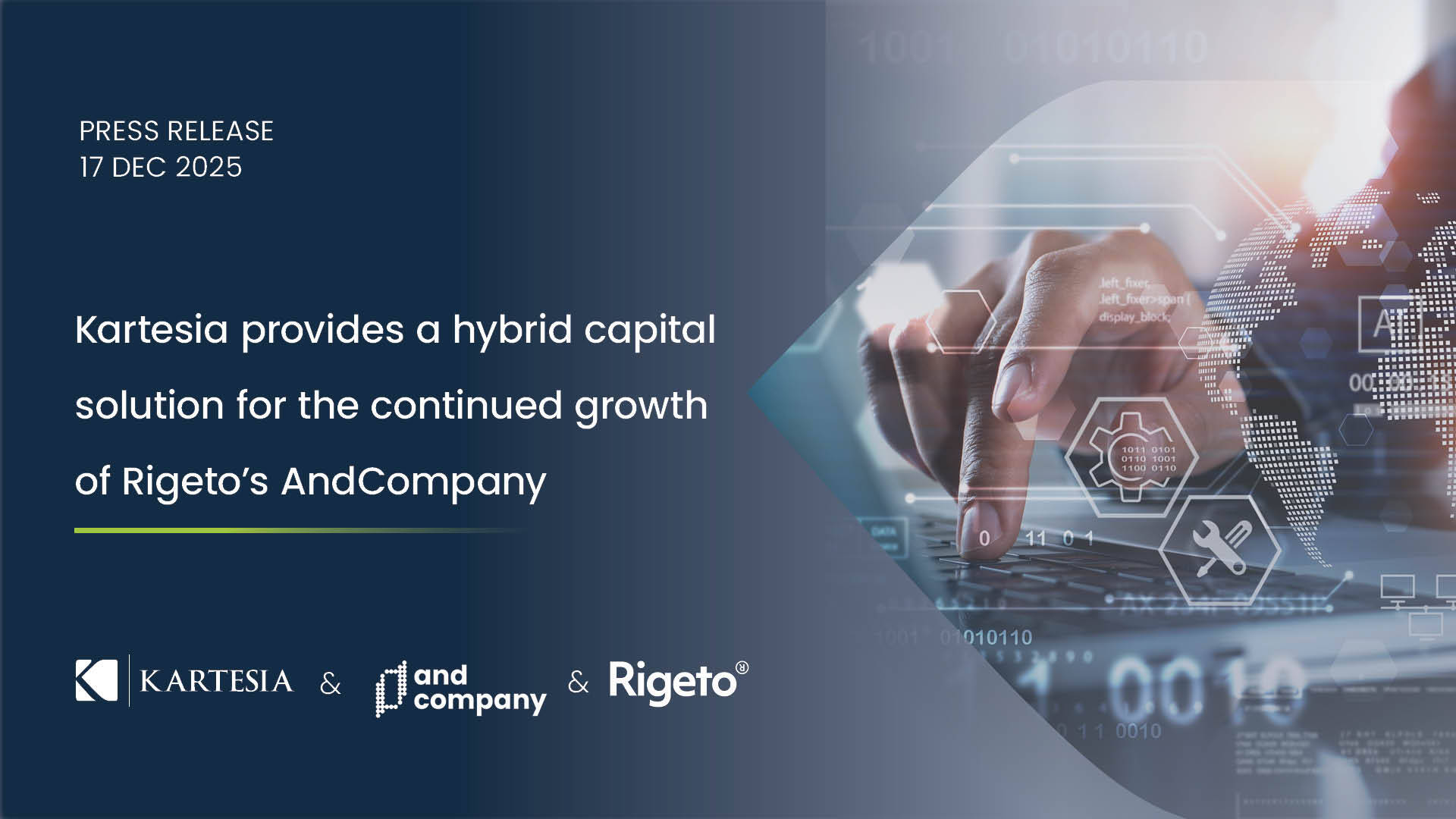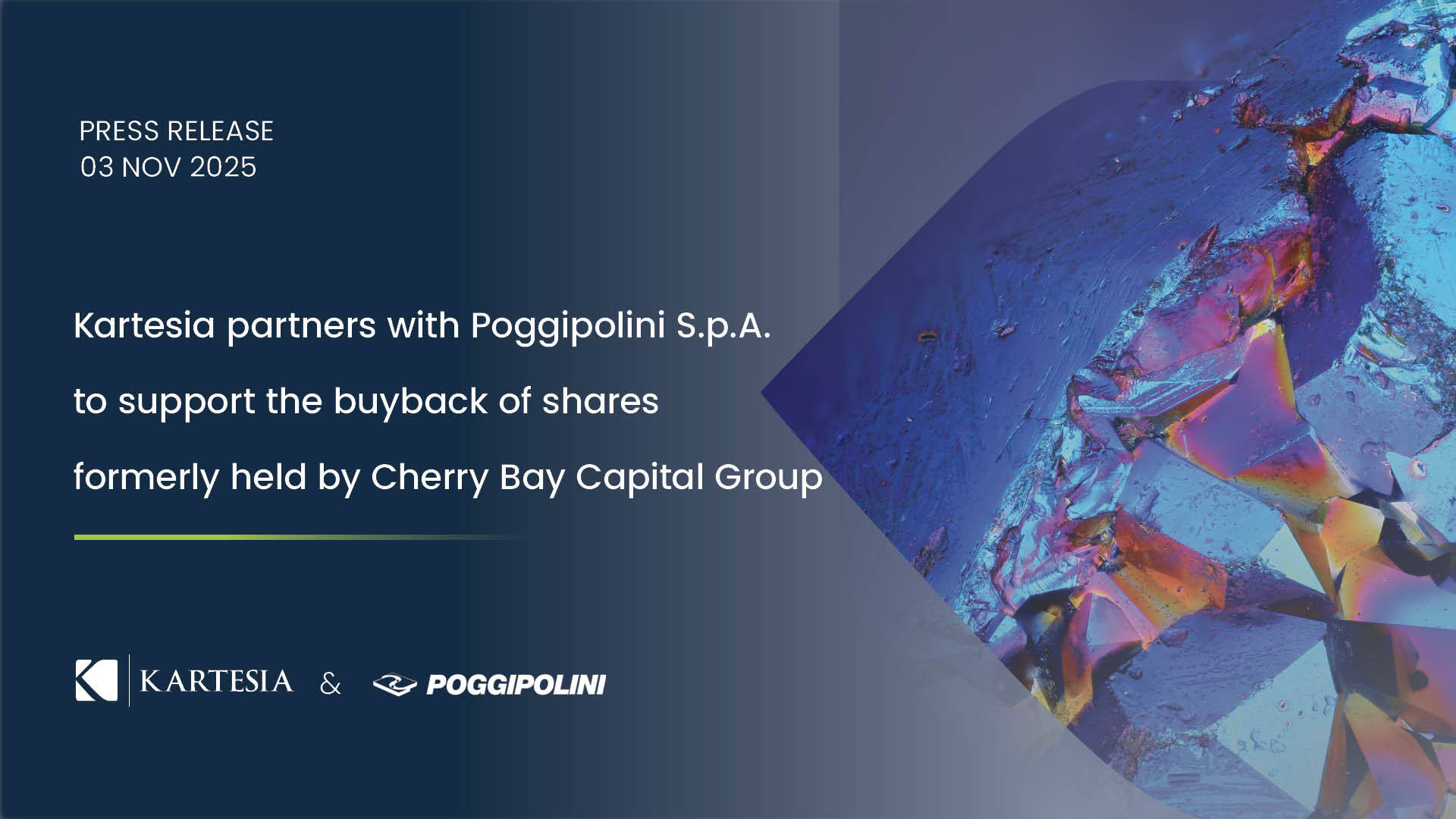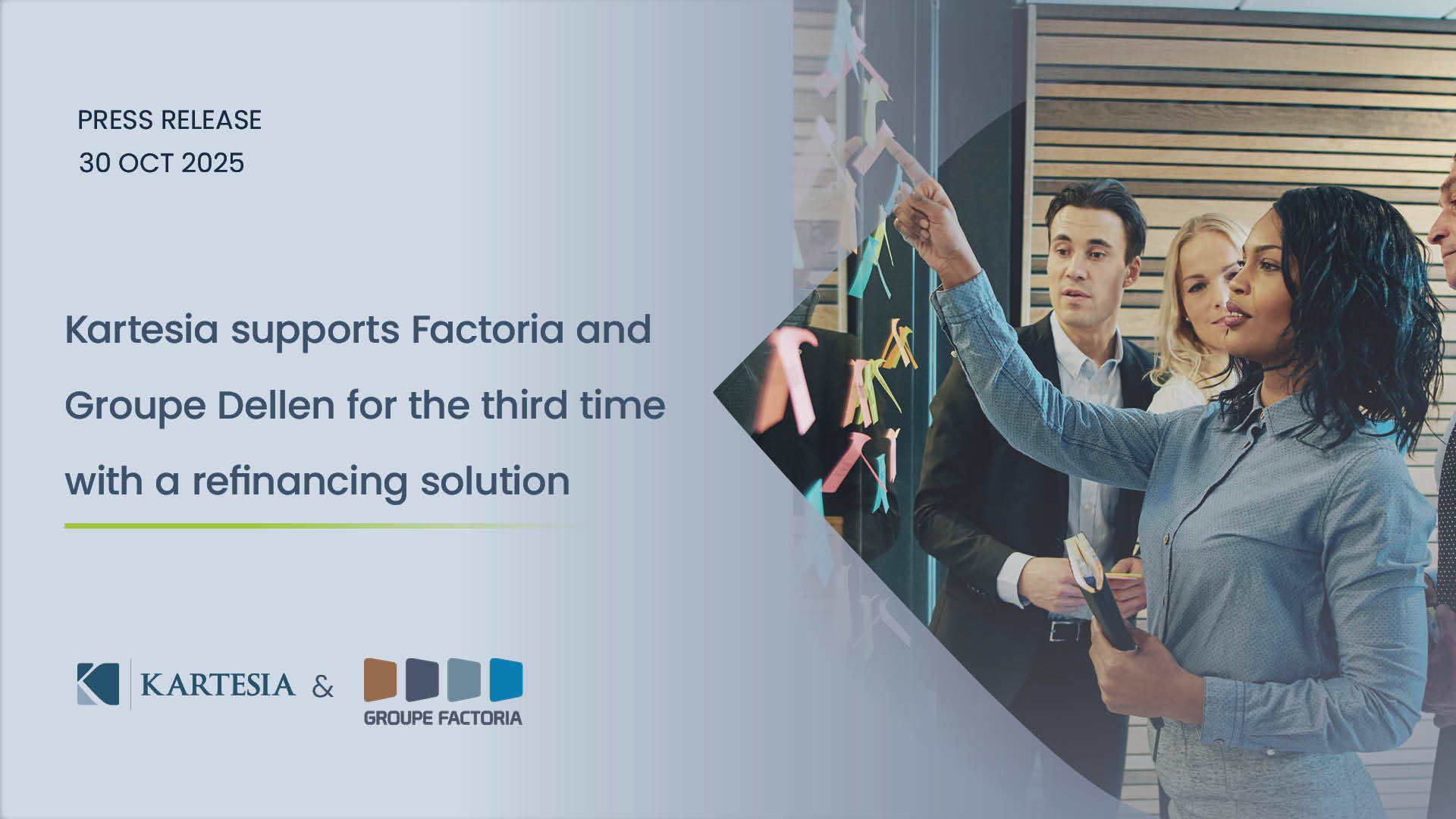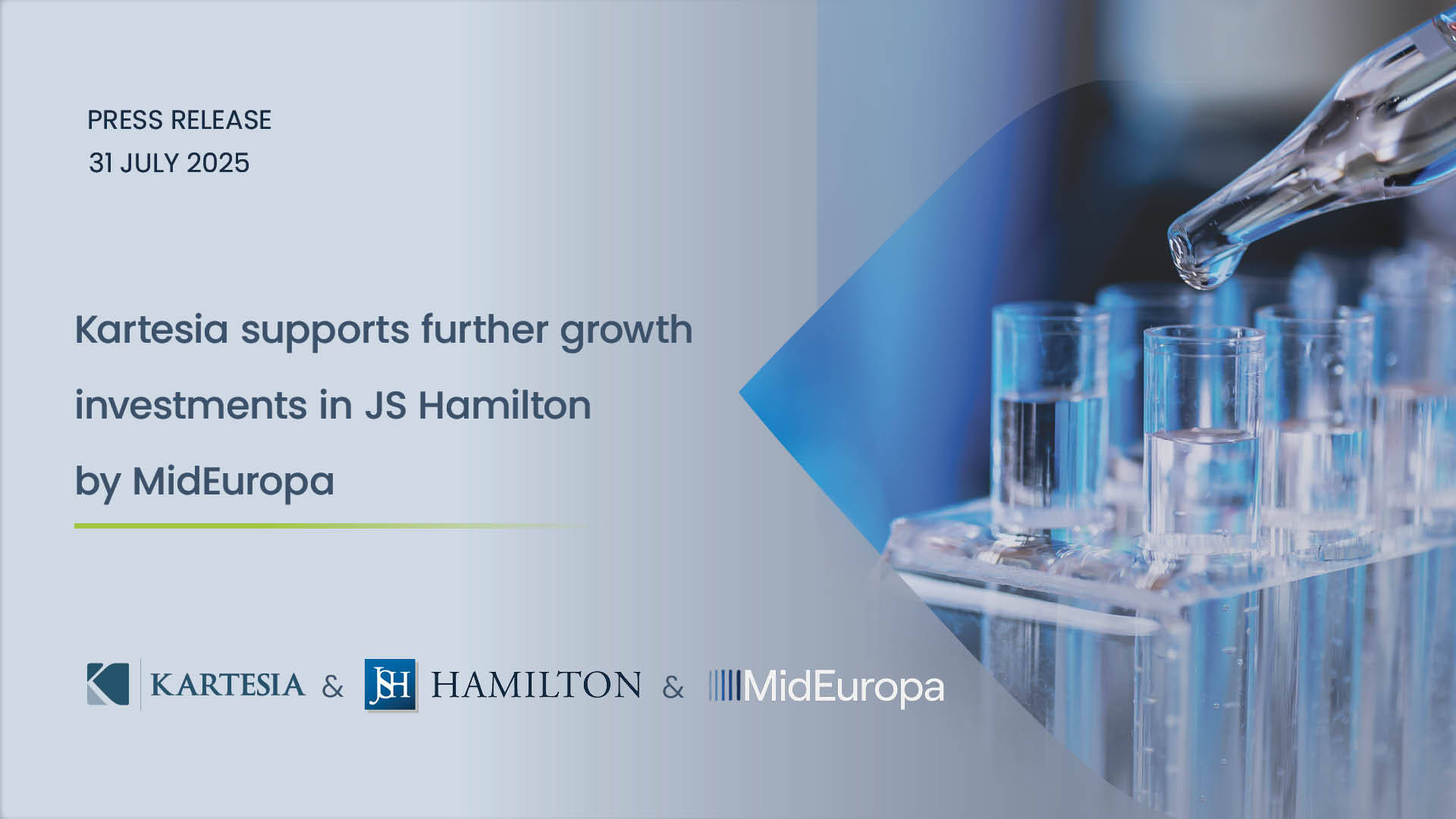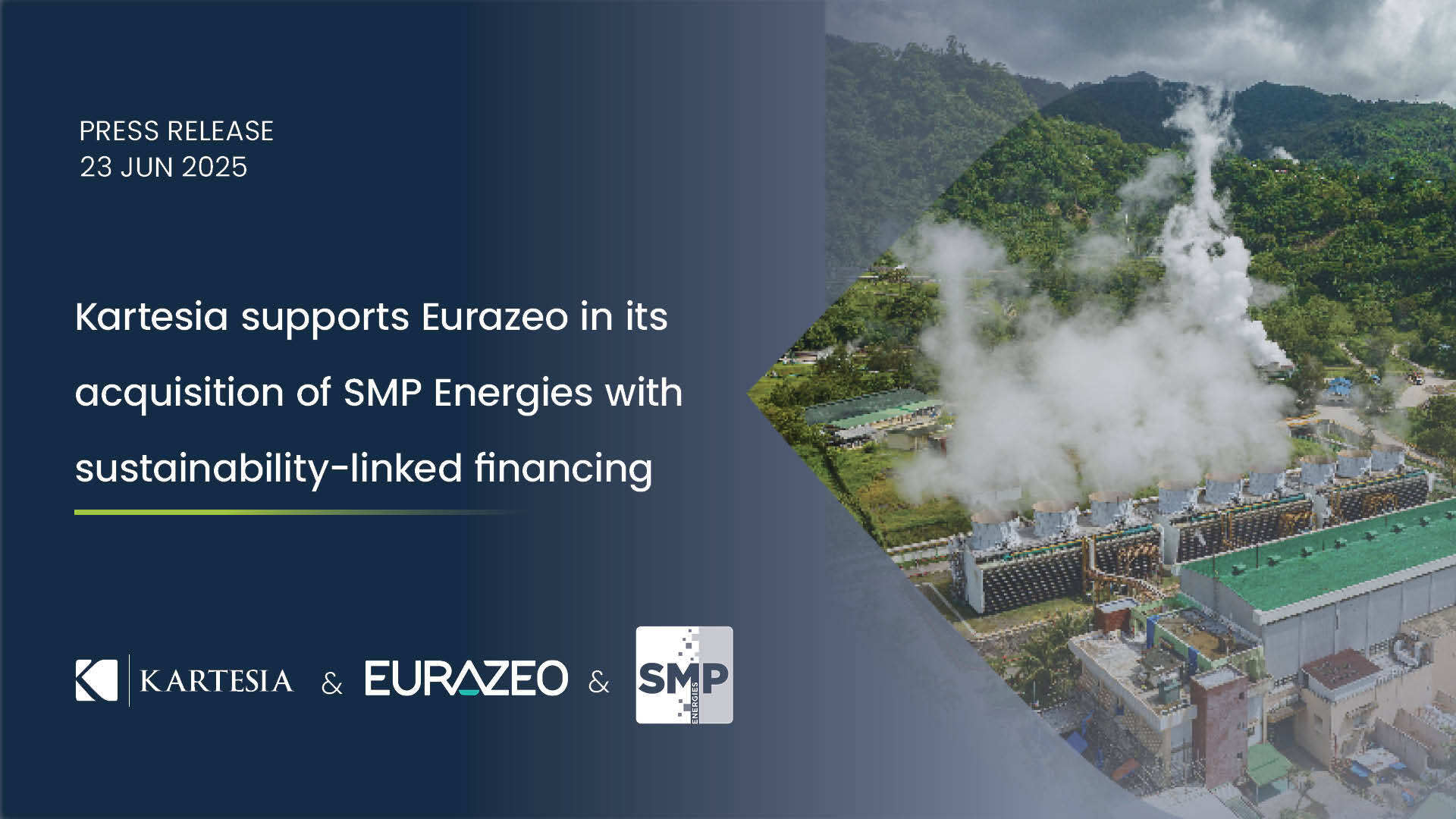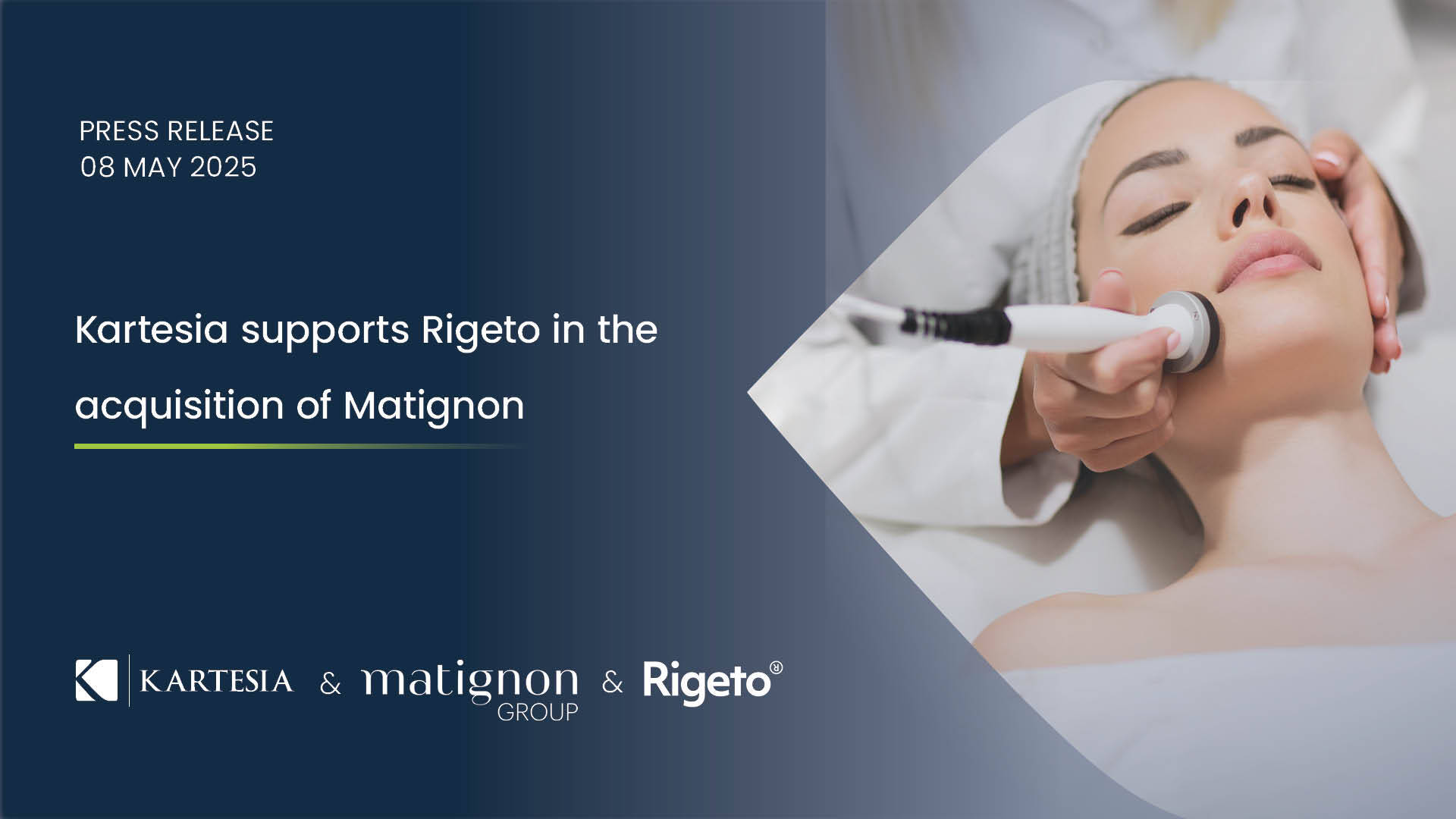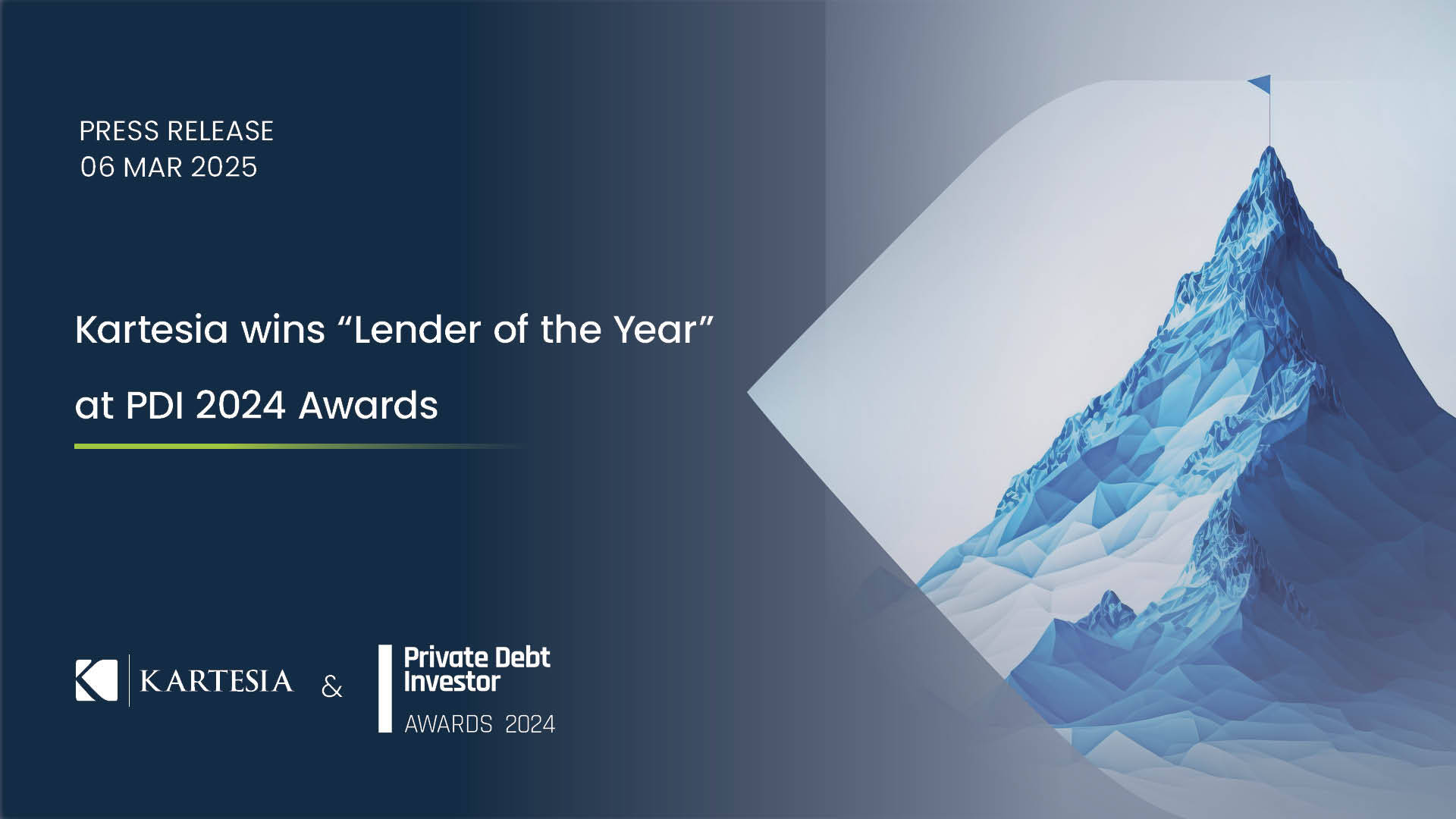News
Insights that matter, news that inspire
Filters
Articles
-
![press-release-mbl-mideuropa-final.jpg]() Portfolio Publications19.12.2025
Portfolio Publications19.12.2025Kartesia finances acquisition of MBL by MidEuropa
-
![press-release-andcompany-rigeto.jpg]() Portfolio Publications17.12.2025
Portfolio Publications17.12.2025Kartesia provides financing solution for continued growth of Rigeto’s AndCompany GmbH
-
![press-release-poggipolini-v2.jpg]() Portfolio Publications03.11.2025
Portfolio Publications03.11.2025Kartesia supports share buyback by Poggipolini S.p.A.
-
![press-factoria-dellen_v2.jpg]() Portfolio Publications30.10.2025
Portfolio Publications30.10.2025Kartesia supports Factoria / SMB and Dellen for the third time with a refinancing solution
-
![press-release-linkedin-evestia-final-1.jpg]() Press Release Publications03.09.2025
Press Release Publications03.09.2025Kartesia supports Evestia Clinical in its acquisition of Atlantic Research Group
-
![press-release-hamilton-mideuropa-1.jpg]() Press Release Publications31.07.2025
Press Release Publications31.07.2025Kartesia supports further growth investments in JS Hamilton by MidEuropa
-
![deals-germandealjuly.gif]() Press Release Publications07.07.2025
Press Release Publications07.07.2025Kartesia provides financing for German Investor-backed pharma services firm
-
![closing-kco-vi-1-1.png]() Press Release Publications04.07.2025
Press Release Publications04.07.2025Kartesia raises €1.3 billion for latest Credit Opportunities fund
-
![press-release-eurazeo-1.jpg]() Press Release Publications23.06.2025
Press Release Publications23.06.2025Kartesia supports Eurazeo in its acquisition of SMP Energies with sustainability-linked financing
-
![press-release-matignon-final-1.jpg]() Press Release Publications08.05.2025
Press Release Publications08.05.2025Kartesia supports Rigeto in the Buy & Build expansion of Matignon Group
-
![press-release-investacc-1-1.jpg]() Press Release Publications28.03.2025
Press Release Publications28.03.2025Kartesia supports InvestAcc Group’s acquisition of AJ Bell’s Platinum SIPP and SSAS business
-
![press-release-pdi-lender-of-the-year-award-1.jpg]() Awards Publications06.03.2025
Awards Publications06.03.2025Kartesia wins “Lender of the Year - Europe” at PDI 2024 Awards

